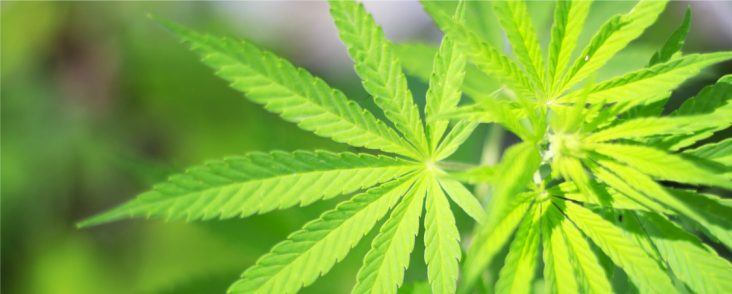Rejected marijuana act backer blames amendment sponsor; will push for special election
by October 29, 2016 7:25 pm 310 views

The sponsor of Issue 7, the Arkansas Medical Cannabis Act which the Supreme Court has removed from the ballot, on Saturday blamed the sponsor of Issue 6, the Arkansas Medical Marijuana Amendment, for her initiative’s demise and said she did not vote for the amendment.
In an interview, Issue 7 sponsor Melissa Fults said she voted against the amendment. On Facebook she wrote, “We ask each of you to vote your conscience. As for (husband) Gary and I, we will not be supporting Issue 6. Once enacted, it will be nearly impossible to change and the financial burden that it will put on patients could be HUGE.”
She wrote that she hopes to file a suit to have a special election regarding the initiative. She said she would work to draft a new initiative if the Supreme Court decision is not reversed.
Her group, Arkansans for Compassionate Care, on Thursday issued a statement on Facebook encouraging supporters to vote for Issue 6, saying it is “better than nothing.”
“The Supreme Court ruled that Issue 7 has been removed from the ballot,” the post said. “We’re going to fight this and appeal in court. But we need to think what’s best for the patients. In the meantime we need to tell people to vote for both. If we win an appeal, then we’ll still be getting (Issue) 7 votes and if we lose we don’t tank (Issue) 6. I know it’s a painful call, but it’s the best option for patients. (Issue) 6 is better than nothing. And if both fail, patients will have to wait years.”
Fults said the group’s decision was made by the board and core team. She said her decision to vote no was an individual one.
She said Issue 6 sponsor David Couch is “the real villain in this game” and called him a “dangerous man.”
In a text, Couch responded by saying, “I understand her frustration but she has lost touch with reality. What she is saying is so far fetched it is difficult to articulate a response.”
Couch and Fults were allied in the 2012 effort to legalize medical marijuana that failed narrowly at the polls. They then went their separate ways over a disagreement over a provision allowing users to grow their own plants.
Prior to Thursday, voters in November were set to decide on two medical marijuana proposals. The Arkansas Medical Marijuana Amendment would change the Constitution to allow for-profit dispensaries to provide marijuana to qualifying patients. The Arkansas Medical Cannabis Act would have used non-profit dispensaries and, unlike the proposed amendment, would have allowed patients living at least 20 miles from a dispensary to grow their own plants.
On Oct. 27, the Arkansas Supreme Court removed the act from the ballot because of problems with the petition-gathering process. The suit, Kara L. Benca vs. Mark Martin, was brought by Benca, a life-member of the National Organization for the Reform of Marijuana Laws, or NORML, a group that supports full marijuana legalization.
It was filed with the help of National Ballot Access, a group Couch hired to collect signatures on his own amendment and which he paid $30,000 to audit the signatures collected by Arkansans for Compassionate Care. National Ballot Access President and CEO Heidi Gay testified before the Supreme Court’s special master, Judge John Robbins, about problems she found.
The Arkansas Medical Marijuana Amendment had raised $885,000 as of Sept. 30 from two backers, Jason Polk of Lake Liquor in Maumelle and Cheney Pruett, owner of the CashMax payday lender. Fults said in an interview that Polk and Pruett are supporting the effort in order to make a profit off marijuana. On Facebook, she said the amendment would harm patients and create a few people who would control the price of medical cannabis on the way to full recreational legalization.
“Without their greed, we would be winning by a landslide, patients would be looking forward to having safe, affordable and legal access to cannabis in just a matter of months,” she wrote.
Couch responded by saying, “The amendment does not guarantee anyone anything at all. It is not like the casino amendment. This amendment is not about recreational use. If you look at other states – it is the out of state, for profit corporations that manage the ‘nonprofit; that make all the money. One company could manage all. The amendment has 40 dispensaries and 8 cultivation facilities. All can grow. You can’t own more than one.”
The Arkansas Supreme Court majority opinion came despite a recommendation from Robbins that enough signatures should be counted to qualify. Fults said the signatures would never have been thrown off in the past and were based on simple mistakes and technical errors by canvassers.
The state’s high court voted 5-2 to remove the act from the ballot, with Justice Courtney Goodson concurring with the majority decision and Chief Justice Howard Brill and Justice Paul Danielson dissenting. Brill wrote that the signature gathering mistakes were not disqualifying. Goodson wrote in her concurring opinion that Act 1413 of 2013 left the court no choice but to remove the initiative, adding that it “imposes a chilling effect on the rights of our citizens to initiate laws. The petition here failed to satisfy the onerous demands of the Act, even though there is no allegation that the signatures were invalid in any other way. The result is that the wishes of the citizens who signed the petition in good faith are being discarded, and the right of the people to pass judgment on the proposal in the voting booth has been lost.”
